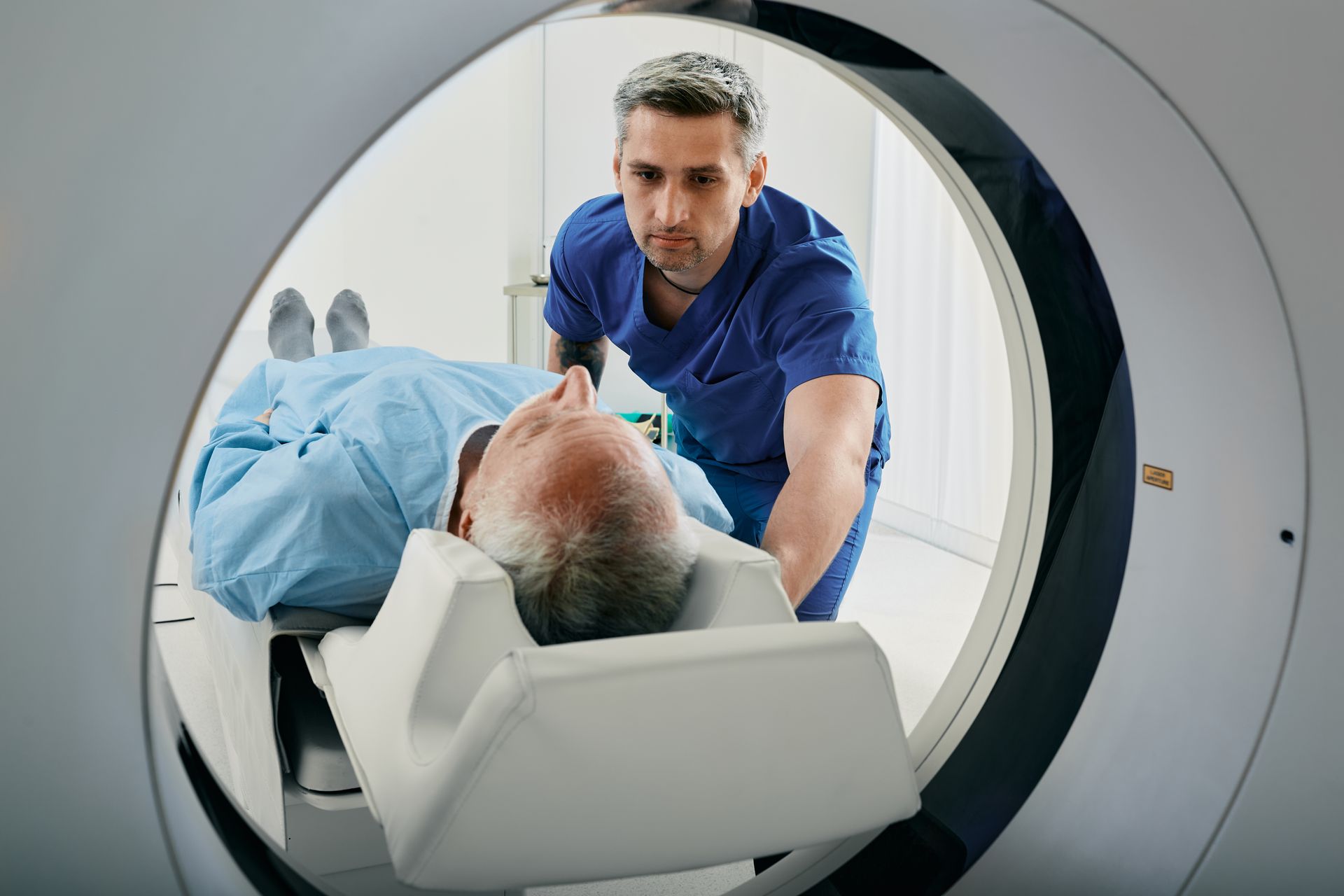DEXA
Dual-Energy X-Ray Absorptiometry (DEXA) For the Fayetteville, NC Area
Dual-energy X-ray absorptiometry (DEXA) is the most widely-used test for measuring bone density. It can accurately and precisely monitor changes in bone density in patients with osteoporosis who are undergoing treatment. This machine takes a picture of the bones in the spine and calculates their density. Your bone density and risk of fracture are compared to the "normal" range for people your age as well as to the maximum bone density possible.

What to Expect
This exam is painless and noninvasive, requiring no special preparations. You will lie on a padded table while the X-ray scanning machine moves over your body to capture images. The exam takes about 15 minutes to complete, and the radiation dosage from the X-ray is less than that used for a chest X-ray. Our family doctor has completed hundreds of these X-rays in the past, so you have nothing to worry about.
Purpose of DEXA
DEXA bone densitometry is most often used to diagnose osteoporosis. Osteoporosis involves a gradual loss of calcium, causing the bones to become thinner, more fragile, and more likely to break. The DEXA test can also assess your risk for developing fractures. If your bone density is found to be low, you and your primary care doctor or family doctor can work together on a treatment plan to help prevent fractures before they occur.
Bone density testing is strongly recommended if you
- Are a post-menopausal woman and not taking estrogen
- Have a personal or maternal history of hip fractures or smoking
- Are a post-menopausal woman who is tall (over 5 feet 7 inches) or thin (less than 125 pounds)
- Are a man with clinical conditions associated with bone loss
- Use medications that are known to cause bone loss, including corticosteroids such as prednisone, various anti-seizure medications such as Dilantin and certain barbiturates, or high-dose thyroid replacement drugs
- Have type 1 (formerly called juvenile or insulin-dependent) diabetes, liver disease, kidney disease or a family history of osteoporosis
- Have high bone turnover, which shows up in the form of excessive collagen in urine samples.
- Have a thyroid condition, such as hyperthyroidism
- Have experienced a fracture after only mild trauma
- Have had X-ray evidence of vertebral fracture or other signs of osteoporosis



